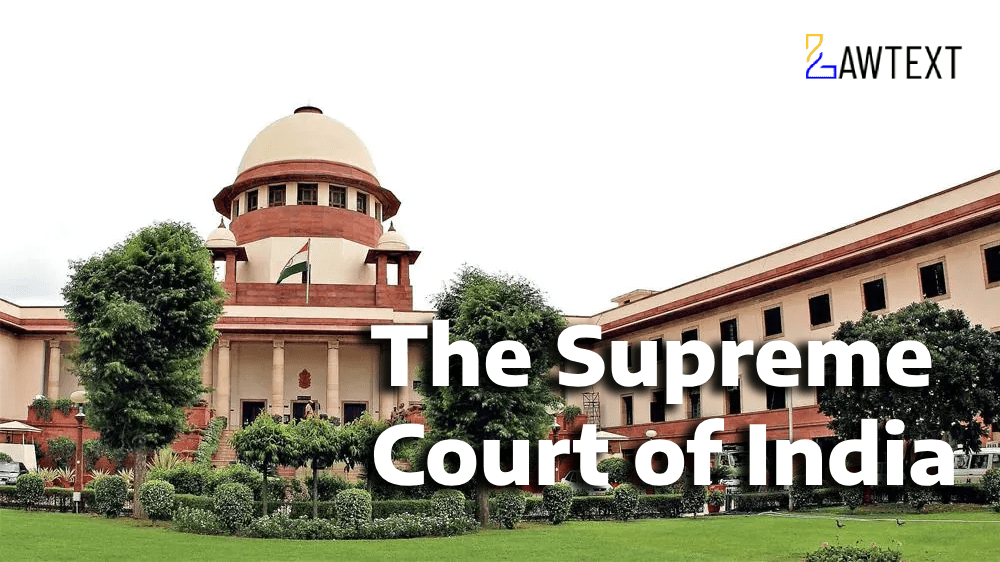Supreme Court Dismisses Abhishek Banerjee & Rujira Banerjee's Plea Against ED Summons. Money laundering case involving coal theft proceeds worth ₹168 crores; summons upheld, ED’s territorial jurisdiction recognized.

CASE NOTE & SUMMARY
The Supreme Court of India upheld the summons issued by the Directorate of Enforcement (ED) under Section 50 of the Prevention of Money Laundering Act (PMLA) to Abhishek Banerjee and Rujira Banerjee. The appellants challenged the ED's summons requiring them to appear in New Delhi instead of Kolkata, where they reside. The Court dismissed the appeals, reaffirming ED’s authority to summon individuals to any location necessary for investigation, given the scale of the alleged laundering of ₹168 crores. Additionally, it ruled that the PMLA, being a special law, prevails over the procedural safeguards of the CrPC, including provisions for summoning women at their place of residence.
-
Case Background:
- The case arose from an FIR registered in 2020 concerning illegal coal excavation and theft by the accused Anup Majee, who allegedly laundered proceeds of ₹1,300 crores.
- Based on this FIR, the ED initiated a money laundering investigation, involving multiple arrests and confiscation of vehicles and equipment linked to coal theft.
-
ED's Summons:
- Abhishek Banerjee and Rujira Banerjee were issued summons under Section 50 of PMLA in 2021, directing their appearance in New Delhi for questioning.
- The appellants requested to be examined in Kolkata instead of New Delhi but failed to comply with ED's summons.
-
Appellants' Argument:
- The appellants argued that as Rujira Banerjee is a homemaker and mother, she should be examined in Kolkata as per Section 160 of CrPC, which provides safeguards for women. They also contended that the ED’s territorial jurisdiction was limited to Kolkata.
-
ED's Stand:
- The ED argued that PMLA, being a special law, overrides the CrPC's provisions, including territorial limitations. Furthermore, it emphasized that the ₹168 crores were transferred to New Delhi, establishing a direct nexus with the Delhi jurisdiction.
-
Court’s Decision:
- The Supreme Court upheld ED’s summons, recognizing its jurisdiction and the overriding nature of PMLA over the CrPC in such cases. It also ruled that Section 50 of PMLA is gender-neutral, and there are no provisions that require summoning a woman only at her place of residence.
Acts and Sections Discussed:
Ratio Decidendi:
The Court held that the PMLA is a special law with an overriding effect over the CrPC, including provisions for territorial jurisdiction and the summoning of individuals. The ED's authority under Section 50 of PMLA is broad and not constrained by CrPC provisions such as Section 160, which limits summoning women to their place of residence. The financial transactions, including the transfer of ₹168 crores to Delhi, justified the ED's decision to summon the appellants in New Delhi.
Subject:
- Money laundering
- ED's jurisdiction under PMLA
- Territoriality in criminal investigations
- Safeguards for women in criminal proceedings
#SupremeCourt #PMLA #MoneyLaundering #ED #AbhishekBanerjee #RujiraBanerjee #CriminalLaw #TerritorialJurisdiction #Section50PMLA
ISSUE OF CONSIDERATION
ABHISHEK BANERJEE & ANR. VERSUS DIRECTORATE OF ENFORCEMENT
Citation: 2024 LawText (SC) (9) 91
Case Number: CRIMINAL APPEAL No(s). 2221-2222 OF 2023
Date of Decision: 2024-09-09
Case Title: ABHISHEK BANERJEE & ANR. VERSUS DIRECTORATE OF ENFORCEMENT
Before Judge: [BELA M. TRIVEDI J. , SATISH CHANDRA SHARMA J.]
Appellant: ABHISHEK BANERJEE & ANR.
Respondent: DIRECTORATE OF ENFORCEMENT

